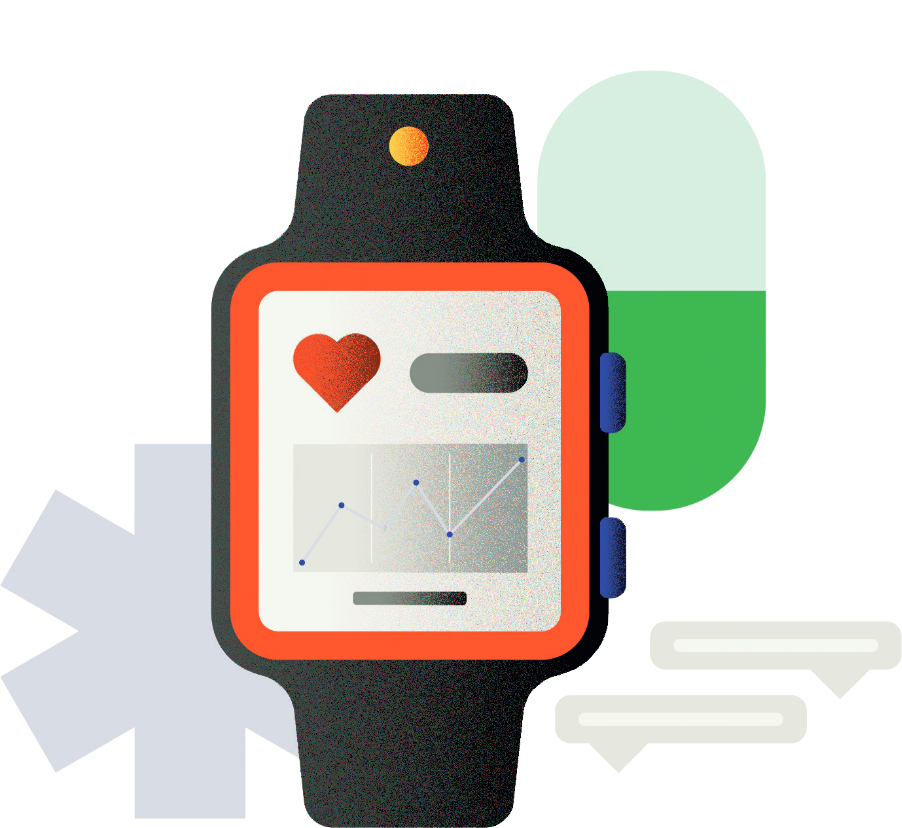
Emerging technologies to watch in 2022
1st March 2022
By Alice Williams
Share
This article was first published in our annual equity report, The Deal.
Off the back of accelerated digital transformation bought on by the pandemic, UK technology companies secured a record level of venture capital funding in 2021. Whilst key startup sectors like fintech and artificial intelligence took the lion’s share of funding, there were also a number of nascent, emerging technologies that started to see more traction.
From new applications for robotics and quantum computing, to carbon accounting and other renewable initiatives, these early-stage sectors are offering novel products or services at a time when audiences are well-positioned to engage, thus peaking investor interest.
Here, we speak to three of the UK’s leading venture capitalists and hear their reflections on the past year, and the emerging technologies that caught their attention.
01.
The Future of Work

“2021 has solidified the importance of looking at the future of work”, Chris Smith at Playfair Capital tells us, emphasising how businesses in this high-potential space have garnered interest from investors. The future of work is a broad sector, referring to technologies and services that reimagine the workplace, ranging from video calling programmes to employee wellbeing apps.
Although lockdown measures have been eased in the UK, and the Government is now encouraging a return to the office, the COVID-19 pandemic caused a shift in how we think about working. The future of work gained popularity as the concept of remote working became mainstream, and companies began recognising the potential benefits of workplace flexibility. For example, in March 2021, Spotify announced a work-from-anywhere scheme, embracing the idea of an international workforce. More recently, in January 2022 several UK companies embarked on a four-day working week trial monitored by academics at the Universities of Cambridge and Oxford.
Accompanying these changes was the opportunity for new solutions to be developed that help facilitate this shift and evolved workforce, as businesses reorganise their operations. Companies building collaborative tools raised £157m across 39 fundraising rounds in the past year. Of specific interest to Chris was the rise of companies embracing a distributed workforce, and the technology emerging to support this: “these technologies have positive outcomes beyond enabling remote working, they level the playing field globally by allowing individuals living outside the country to access career opportunities in the UK.”
One exciting company aiding the move towards a distributed workforce is Omnipresent, which secured £11.6m in equity investment in a January 2021 funding round with Playfair Capital. The business provides outsourced compliance, payroll, and benefits services for international employees, simplifying the administration process of managing people remotely.
Meanwhile, when they launched in April 2020, Fit For Work was in the process of developing AI technology that responded to the challenges of remote working in high-risk environments across the rail and construction sectors. As the pandemic set in, the business quickly broadened the scope of its technology to provide software that improves the health, safety, and wellbeing of employees in other industries. The seed-stage company has attracted £251k in equity investment since making this transition, with its most recent funding round (in December 2021) secured at a pre-money valuation of £1.8m.
Investors have also been eager to back companies working to improve workplace communications. Element, for instance, secured £21.7m worth of equity funding in July 2021. The business develops an encrypted messenger service that facilitates collaborative working, with tools for file sharing, private group discussions, and internal or external messaging.
As companies continue to embrace flexible working and more software emerges to facilitate this transition, it’s likely that investment into the sector will continue to grow (regardless of the Government’s ever-changing COVID-19 policies).
02.
Middleware Software

Speaking to Natasha Jones at Octopus Ventures, she points to middleware software as another emerging sector in the UK, of particular interest to fintech investors. “These players lower the barriers to innovation from a technical perspective” she told us, and “we are seeing players begin to innovate in targeted sectors of the fintech stack”. The rise in popularity of middleware software corresponds with the growing complexity and opportunity found within the broader tech sector. By using middleware, companies are able to purchase software in the form of an API, that yields them functions without the heavy lifting required to build these internally.
"
The rise in popularity of middleware software corresponds with the growing complexity and opportunity found within the broader tech sector
Recognising the burden of meeting data compliance requirements and finding high-quality developers to work internally, the concept of outsourcing these functions through integrations has gained traction with many businesses. Indeed, companies building middleware software attracted £140m of equity investment in 2021, across 18 funding rounds, with the industry maintaining its momentum amidst the pandemic.
One area of middleware software that’s seen particularly strong growth is banking-as-a-service. This technology enables fintechs to interact with banks, providing key infrastructure for their growth. With offerings such as account creation, payment processing, wire transfers and bill payments, banking-as-a-service has benefitted from—and to an extent supported—the fintech boom that’s currently taking place in the UK.
Businesses shaping the sector include Yapily, which has built open banking infrastructure that allows customers to connect with over 1,600 banks in Europe. This service delivers
a unified payment process across the continent, providing instant and fee-free transactions. Also working in the field is Integrated Finance—a company backed by Octopus Ventures—which helps companies streamline their integrations into a singular platform. This offering aims to replace the patchwork of API offerings many businesses navigate, making managing these programmes cleaner and easier.
Looking to the future, there are signs that blockchain will be the next industry for middleware software to tackle. In comparison with the 7m Python and 12.4m JavaScript developers out there, globally, the blockchain sector only has around 9k active monthly developers right now. Drawing on these figures, Natasha explains: “In this space, the barriers to entry are higher, so I’m looking closely at developer tools in blockchain that can speed up adoption and the development of new use cases with this technology”.
03.
Artificial intelligence in the life sciences space

Speaking to Edward Reid at PwC Raise, he explains how “healthtech is, and will likely remain, a hot sector for UK deal making activity”. Investment into the life sciences sector, generally, has gained considerable momentum over the last decade, with world-leading research taking place in both commercial labs and academic institutions across the country. Whilst the rise in healthtech investment was somewhat predictable even before the pandemic, with emerging technologies in the highly-profitable industry naturally drawing in investor attention, COVID-19 has spurred further innovation in the field and highlighted the need for medicine to become more digitised.
One technology that has solidified itself in the life sciences industry is artificial intelligence. Michael Treskow, a Partner at Eight Roads Ventures, explains how the mindset for investors backing AI in the healthcare industry has shifted. “10 years ago,” he explains, it “was all ‘imagine a world’ type investment, and nowadays there’s a product-market fit.”
And our data supports these conclusions, with the value of fundraisings hosted by companies working in the life sciences and artificial intelligence crossover increasing by 310% between 2020 to 2021. Contributing significantly to this rise were three funding rounds secured by Exscientia, a drug development firm that uses AI to design and test potential small molecule drugs, to discover which molecules are most likely to make successful drugs. Having raised £209m in 2021, the business underwent an IPO in October, listing with a market capitalisation of £226m.
Although artificial intelligence has a range of uses in the life sciences sector, its most prominent has been to expedite drug discovery—a process that’s recognised as traditionally being lengthy, risky, and expensive. Large pharmaceutical firms have embraced AI-powered technologies to streamline their operations, reducing R&D costs. AstraZeneca, for example, has successfully collaborated with BenevolentAI on two occasions to discover potential new treatments for Idiopathic Pulmonary Fibrosis and chronic kidney disease. BenevolentAI’s platform draws on artificial intelligence and machine learning to provide a mass analysis of scientific data. The company has secured £253m of equity investment since launching in 2014.
"
Large pharmaceutical firms have embraced AI-powered technologies to streamline
their operations
Beyond drug discovery, artificial intelligence is also being applied to software aimed at improving the workflow and efficiency of those working in the healthcare sector. ConcR, for instance, creates modelling software to identify and predict tumour progression, responding to findings in pre-clinical and clinical trials. The seed-stage business underwent two funding rounds in 2021, worth a combined total of £745k.
With innovation ripe in both healthcare and tech, and pharmaceutical firms looking to challenge tradition, whilst cutting costs, we expect the healthtech industry to continue its growth into 2022.
The emerging sectors capturing VCs’ attention have successfully introduced new technologies into existing fields, providing innovative solutions to ongoing economic and social challenges. Whether this is achieved by creating software to connect and manage workforces, introducing blockchain technology to middleware, or merging pharmaceuticals with artificial intelligence, the companies and industries discussed in this piece will be ones to watch over the next twelve months
Work with the most innovative companies in the UK.
Get access to unrivalled data on all the businesses you need to know about, so you can approach the right leads, at the right time.
Book a 40-minute demo today to see the key features of the Beauhurst platform, as well as the depth and breadth of data available.
An associate will work with you to build a sophisticated search, returning a dynamic list of organisations matching your ideal client profile.